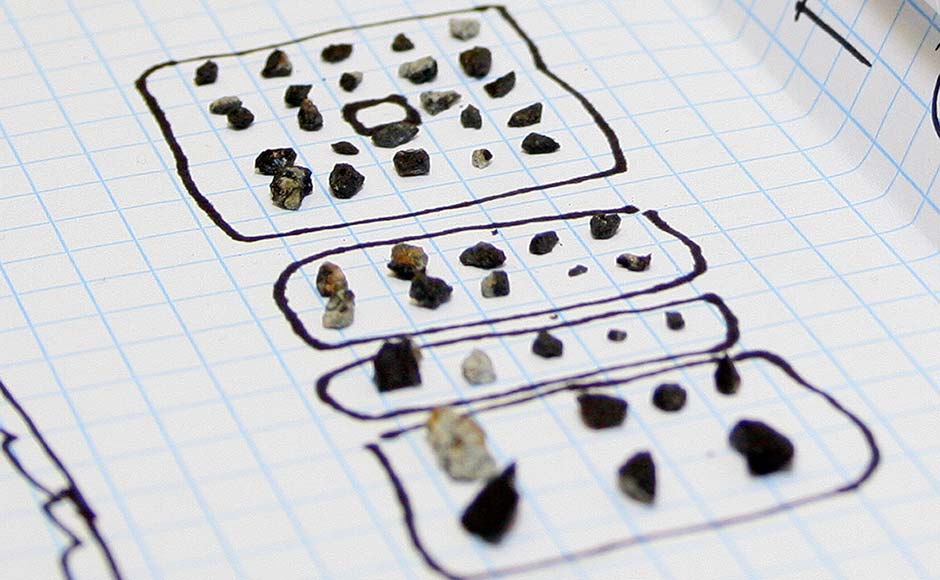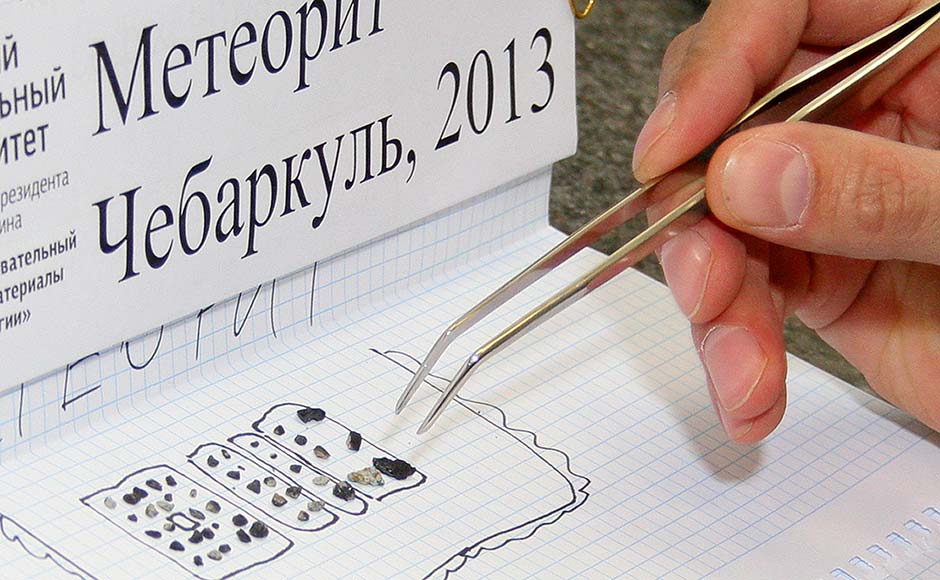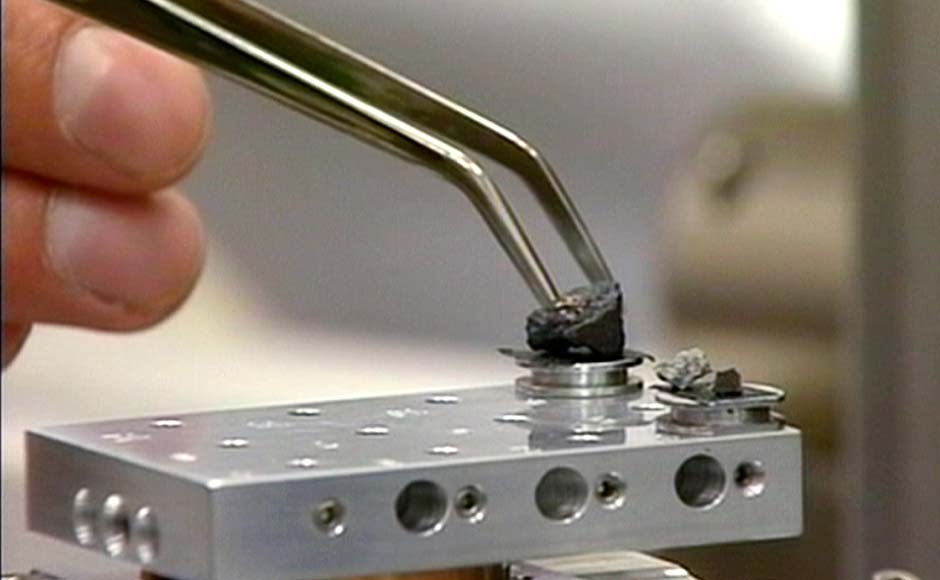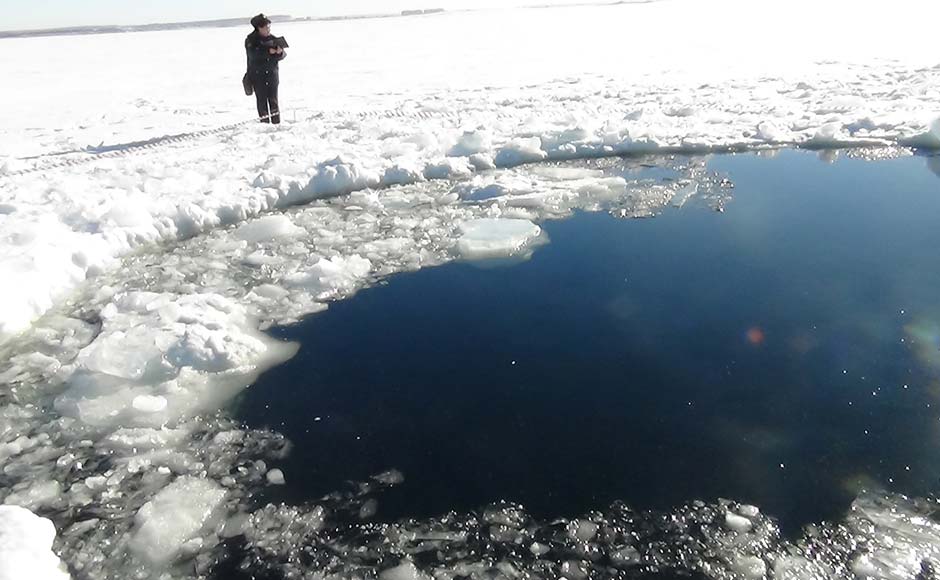Images: Scientists find fragments of meteor that crashed in Russia
Researchers from the Urals Federal University, based in Yekaterinburg, have determined that the small stone-like pieces found near Lake Cherbarkul in the Chelyabinsk region in Russia, are pieces of the meteorite that exploded over the region on 15 February.
)
In this photo distributed by the Urals Federal University Press Service pieces of a meteorite are seen in a laboratory in Yekaterinburg. Researchers from the Urals Federal University, based in Yekaterinburg, have determined that the small stone-like pieces found near Lake Cherbarkul in the Chelyabinsk region are pieces of the meteorite that exploded over the region on 15 February. The Urals Federal University Press Service, Alexander Khlopotov/ AP
)
Researchers from the Urals Federal University, based in Yekaterinburg, have determined that the small stone-like pieces found near Lake Cherbarkul in the Chelyabinsk region are pieces of the meteorite. A total of 53 pieces have been brought for analysis to the university in Yekaterinburg. The Urals Federal University Press Service, Alexander Khlopotov/AP
)
In this frame grab taken from AP video, a researcher touches a piece of a meteorite in a laboratory. The largest one is one centimeter in diameter, the smallest is about one millimeter. AP
)
A circular hole in the ice of Chebarkul Lake where a meteor reportedly struck the lake near Chelyabinsk, about 1500 kilometers (930 miles) east of Moscow, Russia. A meteor streaked across the sky and exploded over Russia’s Ural Mountains with the power of an atomic bomb Friday, its sonic blasts shattering countless windows and injuring nearly 1,000 people. AP

America ready for self-driving cars, but it has a legal problem
US self-driving cars may soon ditch windshield wipers as the NHTSA plans to update regulations by 2026. State-level rules vary, complicating nationwide deployment. Liability and insurance models are also evolving with the technology.
More Impact Shorts

)
)
)
)
)
)
)
)



